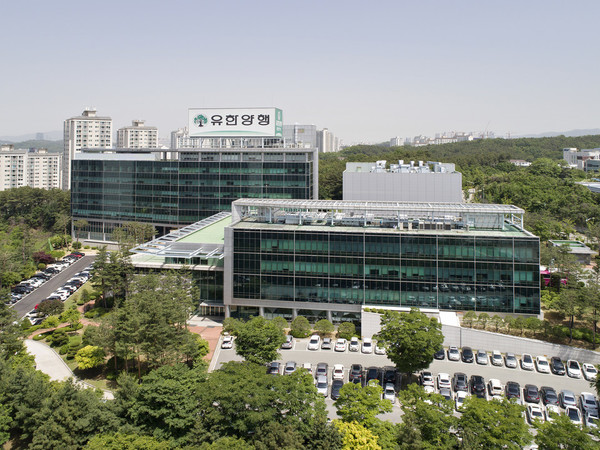Processa Pharmaceuticals said it began to conduct a U.S. phase 2 study of YH12852 (PCS12852), an investigational gastrointestinal treatment Yuhan Corp. licensed out two years ago.
On Wednesday, Yuhan said its technology transfer partner Processa Pharmaceuticals enrolled the first patient of the phase 2a study of PCS12852 (YH12852). Processa received FDA approval for the phase 2a trial in October last year.

In August 2020, Yuhan licensed out YH12852, a functional gastrointestinal treatment, to Processa.
The treatment is a highly selective 5-hydroxytryptamine-4 (5-HT4) receptor agonist. Yuhan transferred the related technology to Processa after completing the preclinical and phase 1 trial in Korea. Processa has the right to develop and commercialize the drug candidate worldwide, except for Korea.
The licensing deal was worth up to $410 million, and Yuhan received the upfront payment of $2 million in shares of Processa. Yuhan can receive milestones and royalties depending on development, marketing approval, and net sales.
Processa plans to investigate YH12852’s safety, pharmacokinetics, and tolerability in 24 patients with moderate to severe gastroparesis at up to eight centers in the U.S. The primary endpoint is the gastric emptying rate assessed by 13C Spirulina Gastric Emptying Breath Test (GEBT).
So far, metoclopramide, a dopamine D2 receptor antagonist, is the only FDA-authorized treatment for diabetic gastroparesis. Due to potential side effects, the use of this drug is limited to less than 12 weeks.
Yuhan said YH12852 has a 200 times higher binding affinity to the 5-HT4 receptor than the existing 5-HT receptor.
Sian Bigora, chief development officer at Processa, said YH12852 improved the gastric emptying rate significantly in constipation patients without any problem with safety.
She expected that the phase 2a study would similarly affect the gastric emptying rate in patients with gastroparesis.
“The study will provide valuable data on PCS12852 (YH12852) on the symptoms associated with gastroparesis in both diabetic and idiopathic gastroparesis patients. Information from the study will then be used to design our phase further 2b study,” she added.
Yuhan said it expected the topline data to be derived by 2022.
Gastroparesis is a chronic gastric motility disorder where delayed gastric emptying of food causes severe heartburn, nausea, vomiting, and bloating. Millions of Americans are known to suffer from this disease.

